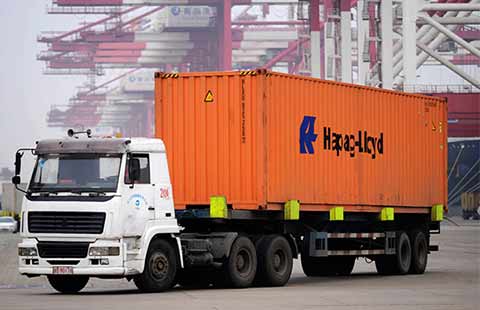Experts say bonds offer way ahead for Hong Kong
By Chai Hua and Zhou Mo in Hong Kong (China Daily) Updated: 2016-04-21 09:49Experts said the bond market is an important way Hong Kong can safeguard its role as a global financial hub in the future, as its role as an international renminbi clearing center faces intense competition with the Chinese mainland vigorously promoting the renminbi internationalization.
"In the beginning of the internationalization of the renminbi, we relied on offshore markets and clearing centers, and Hong Kong was a must for international renminbi clearing, so it had a unique advantage," said Ba Shusong, chief China economist at the mainland division of Hong Kong Exchanges and Clearing Ltd.
But with the launch of the China International Payments System, Hong Kong's position changes from "unique" to "ordinary", he told a forum in Hong Kong on Wednesday.
In October, CIPS, supervised by the People's Bank of China, was launched, allowing 19 mainland banks and 176 financial institutions across the world to clear cross-border renminbi payments.
In addition, he said that the new direction being taken recently in the internationalization of the renminbi focuses more on the bond market, but Hong Kong doesn't have much advantages in this respect.
In November, the renminbi was approved by the International Monetary Fund to join its Special Drawing Rights basket, becoming the fifth reserve currency along with the US dollar, the euro, the British pound and the Japanese yen.
"After China entered the SDR, the number of central banks that possess the renminbi increased from 40 to more than 100 and their asset allocation demand focused on fixed-income products, especially bonds."
He believes that markets which can provide better quality renminbi fixed-income products will benefit more from the internationalization of renminbi.
"But Hong Kong doesn't have outstanding advantages in this area at the moment as its bond market is not very developed."
Wong Chak-wai, Asia operating director at KGI Securities, agreed that demand for bond products will be huge, suggesting that Hong Kong to increase the volume and categories of bond products, such as the Dim Sum Bond.
- China's property loans grow 22.2%
- Phantom screenings: The show mustn't go on!
- Zhejiang Wanfeng acquires US robotics maker Paslin
- Shenyang firm sets up smart machine tool fund
- Chinese banks' loans to small businesses rise 14.5%
- Hainan duty-free sales surpass 19b yuan
- Outstanding loans amount to 98.56t yuan by March, up 14.7%
- Reforms spur foreign investors' interest in interbank bond market

















